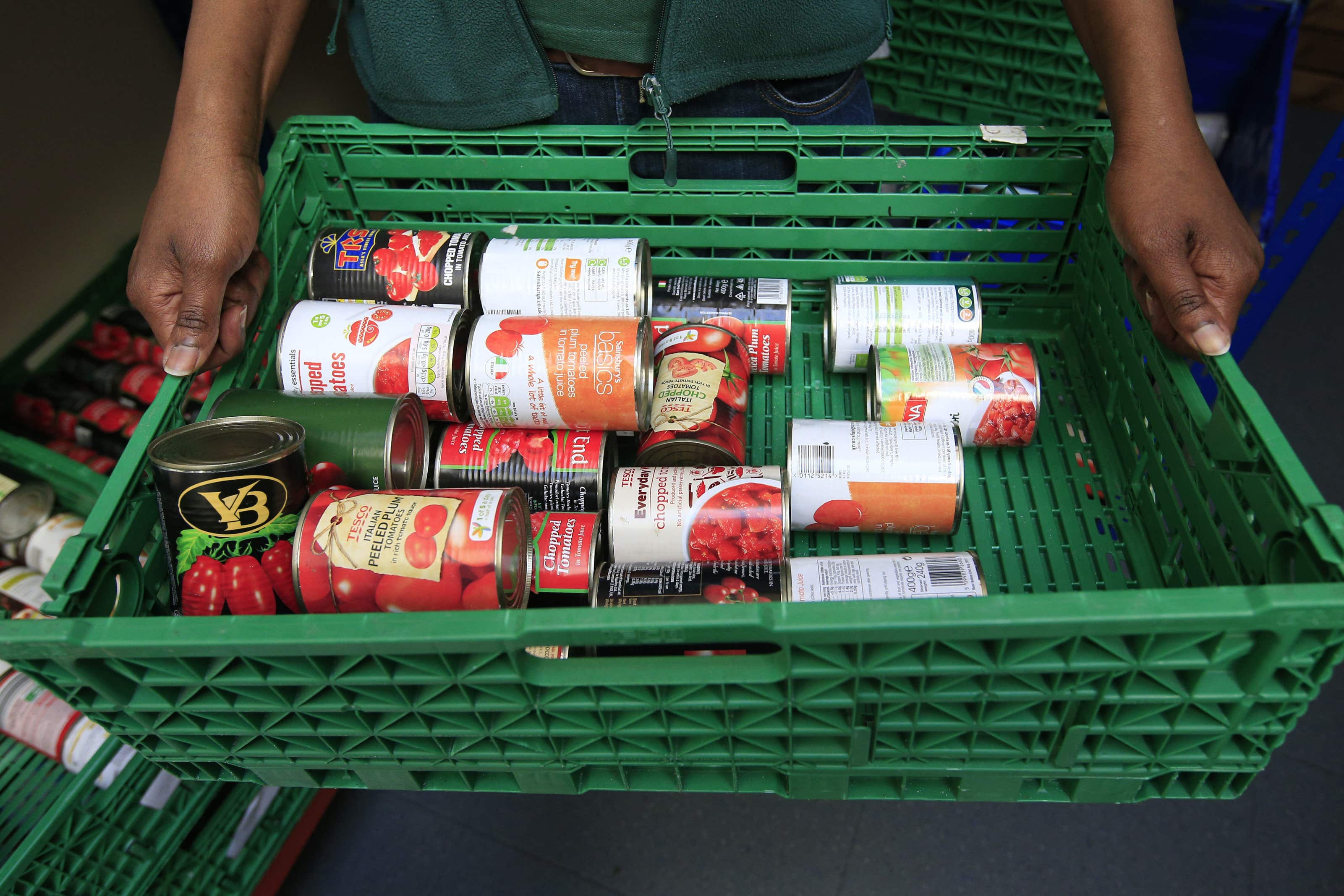Charities worried about their ability to survive, survey suggests
Organisations working for the prevention or relief of poverty were ‘particularly likely’ to report an increase in demand for services, the CAF said.

Your support helps us to tell the story
From reproductive rights to climate change to Big Tech, The Independent is on the ground when the story is developing. Whether it's investigating the financials of Elon Musk's pro-Trump PAC or producing our latest documentary, 'The A Word', which shines a light on the American women fighting for reproductive rights, we know how important it is to parse out the facts from the messaging.
At such a critical moment in US history, we need reporters on the ground. Your donation allows us to keep sending journalists to speak to both sides of the story.
The Independent is trusted by Americans across the entire political spectrum. And unlike many other quality news outlets, we choose not to lock Americans out of our reporting and analysis with paywalls. We believe quality journalism should be available to everyone, paid for by those who can afford it.
Your support makes all the difference.More than half of charities are worried about their ability to survive and those in the north of England are among the hardest hit, a survey of more than 1,300 organisations has suggested.
The majority (57%) reported that demand had increased in January compared with the same time last year, while less than a third (31%) are very confident that their current funding is secure, the Charities Aid Foundation (CAF) said.
At the beginning of the year 53% said they were either “very” or “slightly worried” about struggling to survive, the research found.
This was up from 51% in October but down from a peak of 60% in December.
The CAF said that in the north of England demand has increased for more than two thirds (67%) of charities, compared with 55% across the rest of England.
Even as the economic outlook might look brighter than feared, charities are saying loud and clear that they are still facing the squeeze
It added that charities in the North are also significantly more likely to have used their reserves to meet running costs than those based elsewhere in England – 63% compared with 50%.
Results also differed depending on the type of charity, the survey found, with those working for the prevention or relief of poverty “particularly likely” to report an increase in demand for services, the CAF said.
The percentage was 87% compared with a sector average of 58%.
Faith-based charities and arts, culture and heritage charities were among those least likely to report an increase in demand, the CAF said.
Among its recommendations to the Government, the foundation called for more financial support, targeted help in the form of reviewing the non-domestic energy support package after March, and automated Gift Aid to address the £500 million which it said is unclaimed every year.
CAF chief executive Neil Heslop said: “Imagine what this winter would have been like without charities helping people day in, day out with food, shelter and care. Even as the economic outlook might look brighter than feared, charities across the UK are saying loud and clear that they are still facing the squeeze from falling income, rising costs and rising demand.
“Those in the north of England have reported some of the biggest increases in need and are more likely than charities elsewhere in England to have used their reserves to pay bills.
“The dramatic cut in Government support for energy bills from April will put many charities in an even more precarious position, particularly those who are helping the most vulnerable. But they are not businesses and have no way to pass their costs on.
“The Chancellor should use his upcoming Budget to acknowledge the contribution charities are making everywhere – and provide the additional ongoing support they need to face the future with confidence.”
CAF surveyed a total of 1,323 organisations across the four nations of the UK from October to January 2023.
Of those, 97 were based in Scotland, 59 in Wales and 18 in Northern Ireland.
The CAF said the sample sizes for those areas were not big enough to provide any more detailed analysis but that they hope to gather enough data to do so in future research.
A Department of Culture Media and Sport (DCMS) spokesperson said: “We know charities are contending with increases in running costs, which is why we provided an £18 billion package of energy support for organisations and businesses throughout the winter.
“Charities have shown huge resilience over the past few years and will continue to receive support for their energy bills until March 2024 under the Government’s Energy Bills Discount Scheme.”